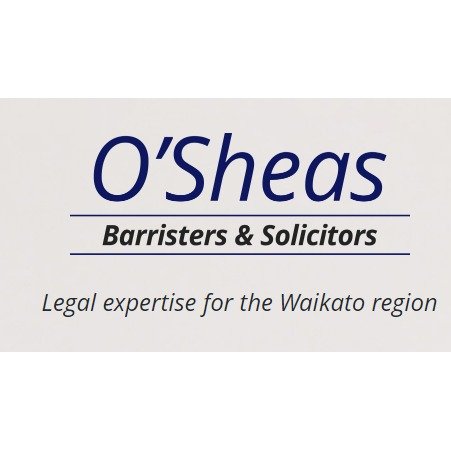Best Civil & Human Rights Lawyers in New Zealand
Share your needs with us, get contacted by law firms.
Free. Takes 2 min.
Or refine your search by selecting a city:
List of the best lawyers in New Zealand
About Civil & Human Rights Law in New Zealand
New Zealand is recognized for its strong commitment to upholding civil and human rights through various legislations and international agreements. The cornerstone of New Zealand's Civil & Human Rights Law is the New Zealand Bill of Rights Act 1990, which affirms fundamental freedoms such as the right to life and security, freedom of speech, and protection against discrimination. Additionally, New Zealand abides by international human rights standards, being a signatory to various human rights treaties including the Universal Declaration of Human Rights and the International Covenant on Civil and Political Rights.
Why You May Need a Lawyer
There are numerous situations where an individual may seek legal advice in the field of Civil & Human Rights, including:
- Experiencing discrimination in employment or social services.
- Encountering issues related to freedom of speech or press.
- Dealing with unjust treatment by public authorities or law enforcement.
- Seeking asylum or refugee status due to persecution in your home country.
- Addressing privacy breaches or data security concerns.
- Activating mechanisms to protect against domestic violence or harassment.
Local Laws Overview
New Zealand's legislative framework is designed to protect and promote human rights. Key aspects include:
- The New Zealand Bill of Rights Act 1990: Sets out the rights and freedoms of anyone subject to New Zealand law.
- The Human Rights Act 1993: Prohibits discrimination based on various grounds, including race, sexual orientation, and gender identity.
- The Privacy Act 2020: Governs the collection, use, and disclosure of personal information.
- The Employment Relations Act 2000: Provides a framework for employment relationships, ensuring workers' rights are protected.
- The Family Violence Act 2018: Enhances the safety of victims of family violence.
Frequently Asked Questions
What rights do I have under the New Zealand Bill of Rights?
You have rights that include freedom of speech, movement, thought, conscience and religion, and the right to a fair trial.
How do I file a complaint of discrimination?
Complaints can be filed with the Human Rights Commission, which will facilitate mediation or refer the matter to the Human Rights Review Tribunal.
Can I request a correction to my personal information?
Yes, under the Privacy Act 2020, you can request corrections to your personal data if you believe it is incorrect.
What should I do if I am a victim of police misconduct?
You may file a complaint with the Independent Police Conduct Authority, which will investigate your claim.
Are there protections for free speech in New Zealand?
Yes, freedom of expression is protected under the New Zealand Bill of Rights, within reasonable limits that protect other human rights and public order.
Do refugees have rights in New Zealand?
Refugees in New Zealand are protected under international law and may apply for asylum to avoid persecution.
What constitutes discrimination under the Human Rights Act?
Discrimination occurs when a person is treated unfairly or less favorably than others based on specific attributes such as race, gender, or disability.
Can I report family violence anonymously?
Yes, you can report anonymously through several support services and the police to ensure safety and confidentiality.
How does the Employment Relations Act protect workers?
The Act ensures fair treatment in the workplace, safe working conditions, and the right to join and participate in trade unions.
What can I do if my privacy has been breached?
If you believe your privacy has been breached, you can lodge a complaint with the Office of the Privacy Commissioner.
Additional Resources
If you are seeking legal advice, consider reaching out to the following resources:
- Human Rights Commission: Offers mediation, advice, and support on human rights issues.
- Community Law Centres: Provides free legal help and support to New Zealanders who don’t have access to other services.
- Office of the Privacy Commissioner: Handles privacy complaints and provides guidance on privacy rights.
- Citizens Advice Bureau: An independent service providing free, confidential information and advice.
- Local law firms: Many provide services in Civil & Human Rights law; seek ones with good reviews and experience in this field.
Next Steps
If you need legal assistance in Civil & Human Rights:
- Identify the specific issue you are facing and gather any relevant documents or evidence.
- Reach out to community resources or contact a specialized lawyer for advice.
- Consider mediation or alternative dispute resolution through appropriate bodies like the Human Rights Commission.
- Prepare and file any complaints needed with the relevant authorities or tribunals.
- Stay informed about your rights through reliable sources to ensure you are adequately protected and represented.
Lawzana helps you find the best lawyers and law firms in New Zealand through a curated and pre-screened list of qualified legal professionals. Our platform offers rankings and detailed profiles of attorneys and law firms, allowing you to compare based on practice areas, including Civil & Human Rights, experience, and client feedback.
Each profile includes a description of the firm's areas of practice, client reviews, team members and partners, year of establishment, spoken languages, office locations, contact information, social media presence, and any published articles or resources. Most firms on our platform speak English and are experienced in both local and international legal matters.
Get a quote from top-rated law firms in New Zealand — quickly, securely, and without unnecessary hassle.
Disclaimer:
The information provided on this page is for general informational purposes only and does not constitute legal advice. While we strive to ensure the accuracy and relevance of the content, legal information may change over time, and interpretations of the law can vary. You should always consult with a qualified legal professional for advice specific to your situation.
We disclaim all liability for actions taken or not taken based on the content of this page. If you believe any information is incorrect or outdated, please contact us, and we will review and update it where appropriate.
Browse civil & human rights law firms by service in New Zealand
New Zealand Attorneys in related practice areas.
Browse civil & human rights law firms by city in New Zealand
Refine your search by selecting a city.













